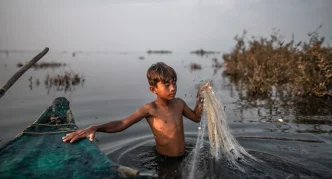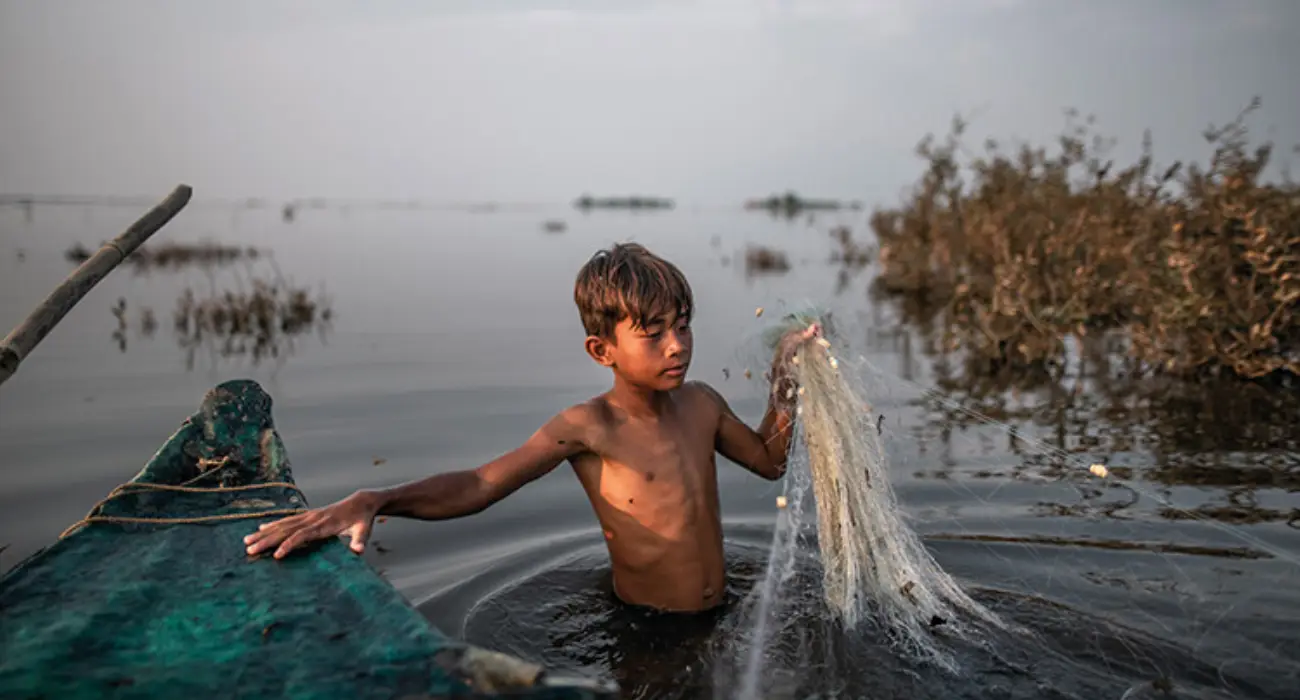In a landmark move for Cambodia’s environmental and economic future, the Senate unanimously approved a draft fisheries law on June 16, 2025, aimed at transforming the management and conservation of the country’s vital fisheries sector. The legislation, which passed without amendments during the third session of the fifth legislative term, seeks to ensure long-term food security, promote sustainable resource use, and align Cambodia with international standards in combating illegal, unreported, and unregulated (IUU) fishing. With all 60 Senate members voting in favor under the chairmanship of Senate President Hun Sen, the approval marks a significant step forward for a nation where fisheries play a critical role in livelihoods and nutrition.
A Comprehensive Framework for Fisheries Management
The newly approved draft law, comprising 15 chapters and 104 articles along with two annexes, was meticulously crafted to address multiple dimensions of Cambodia’s fisheries sector. It prioritizes the conservation and sustainable development of fishery resources while safeguarding the rights and interests of fishers, fishing communities, aquaculture operators, and private sector stakeholders. The legislation also reflects Cambodia’s evolving socio-economic landscape and technological advancements, ensuring that policies remain relevant in a rapidly changing world.
One of the law’s core objectives is to strengthen the legal and regulatory framework governing fisheries. This includes promoting active participation in sustainable management practices within both regional and international contexts. By aligning with global standards, Cambodia aims to enhance its reputation as a responsible player in the fight against IUU fishing, a persistent challenge that undermines marine ecosystems and economic stability across Southeast Asia.
The draft law builds on earlier legislative efforts, having been approved by the National Assembly on May 22, 2025, with 103 votes in favor during the fourth session of the seventh legislative term. Its passage through both chambers of Cambodia’s legislature underscores a unified political commitment to addressing long-standing issues in the fisheries sector, which supports millions of livelihoods and contributes significantly to national food security.
International Support and Recognition
The approval of the fisheries law has garnered praise from international partners, notably the Food and Agriculture Organization of the United Nations (FAO) in Cambodia. Describing the development as “a significant achievement,” FAO Cambodia emphasized that the law reinforces the country’s dedication to sustainable resource management and food security. The organization also highlighted the legislation’s role in protecting the interests of diverse stakeholders, from small-scale fishers to larger aquaculture businesses.
“This legal milestone is a testament to Cambodia’s commitment to aligning its fisheries policies with regional and international frameworks” stated an FAO representative in a recent press release. The organization further noted that the law would bolster efforts to combat IUU fishing, a practice that depletes fish stocks, harms marine biodiversity, and disadvantages law-abiding fishers and communities.
The development of the draft law was supported by the CAPFISH-Capture programme, an initiative funded by the European Union and implemented with technical assistance from the FAO. Under the leadership of the Fisheries Administration within the Ministry of Agriculture, Forestry, and Fisheries, the programme has focused on strengthening Cambodia’s legal and institutional capacity to manage its fishery resources sustainably. This includes training and support for law enforcement, as well as capacity-building initiatives to empower local communities and government bodies.
Addressing Illegal Fishing and Environmental Challenges
Illegal, unreported, and unregulated fishing remains a pressing issue for Cambodia, as it does for many countries in the Mekong region. IUU fishing not only threatens the sustainability of fish stocks but also undermines the economic stability of fishing communities that rely on these resources for their livelihoods. The Tonle Sap Lake, often referred to as the “beating heart” of Cambodia’s fisheries, produces a significant portion of the country’s freshwater catch, making it a critical area for conservation efforts.
The new law introduces stricter regulations and enforcement mechanisms to curb IUU practices. While specific details of these measures remain to be fully implemented, experts anticipate that enhanced monitoring, reporting requirements, and penalties for non-compliance will play a central role. If successful, these efforts could serve as a model for other nations in the region grappling with similar challenges.
Environmental sustainability is another key pillar of the legislation. Cambodia’s fisheries sector faces growing pressures from climate change, habitat degradation, and overfishing. The law aims to address these issues by promoting conservation practices and encouraging the adoption of sustainable aquaculture methods. This dual focus on environmental and economic goals reflects a broader recognition that the health of Cambodia’s ecosystems is intrinsically linked to the well-being of its people.
Economic Implications and Community Impact
Fisheries are a cornerstone of Cambodia’s economy, providing employment for hundreds of thousands of people and contributing to the nation’s food supply. The sector is particularly vital for rural communities, where fish often serves as the primary source of protein. By protecting the rights and benefits of fishers and aquaculture operators, the new law seeks to ensure that economic gains are equitably distributed across the industry.
However, the transition to stricter regulations may pose challenges for small-scale fishers who lack the resources to adapt quickly. While the legislation emphasizes support for fishing communities, questions remain about how effectively these measures will be implemented on the ground. Stakeholders will be watching closely to see whether adequate funding and training programs are rolled out to assist those most affected by the changes.
At the same time, the law’s emphasis on aligning with international standards could open up new opportunities for Cambodia’s fisheries sector. Compliance with global anti-IUU fishing frameworks may enhance access to export markets, particularly in the European Union, where stringent regulations govern seafood imports. This could lead to increased revenue for Cambodian businesses, provided they meet the necessary certification and traceability requirements.
Political Context and Leadership
The unanimous approval of the fisheries law in the Senate, chaired by President Hun Sen, reflects a broader political consensus on the importance of sustainable development in Cambodia. Agriculture Minister Dith Tina, who presented the draft to the Senate during a plenary session, played a pivotal role in articulating the legislation’s objectives and addressing lawmakers’ concerns. His leadership in steering the bill through the approval process has been widely acknowledged as a key factor in its success.
The fisheries law also aligns with Cambodia’s broader policy goals under the ruling Cambodian People’s Party (CPP), which has prioritized economic modernization and environmental protection in recent years. While the government faces criticism in other areas, such as human rights and political freedoms, initiatives like the fisheries law demonstrate a commitment to addressing systemic challenges in critical sectors of the economy.
Nevertheless, some analysts caution that the true test of the law’s effectiveness will lie in its implementation. Cambodia has historically struggled with enforcement in remote areas, where illegal fishing practices often go unchecked due to limited resources and oversight. If the government can overcome these hurdles, the fisheries law could serve as a cornerstone of its environmental and economic agenda.
Looking Ahead: Challenges and Opportunities
As Cambodia moves forward with the fisheries law, the focus will shift to translating legislative intent into tangible outcomes. Key questions remain about how the government will balance the competing demands of conservation, economic growth, and community welfare. The involvement of international partners like the FAO and the EU will likely be crucial in providing technical and financial support during this transition.
For now, the unanimous approval of the draft law stands as a promising development for a sector that touches the lives of millions of Cambodians. Whether it can deliver on its ambitious goals—ensuring food security, protecting ecosystems, and combating illegal fishing—remains an open question. As implementation unfolds, the eyes of both local communities and the international community will be on Cambodia to see if this legal milestone can truly chart a sustainable path forward.
















